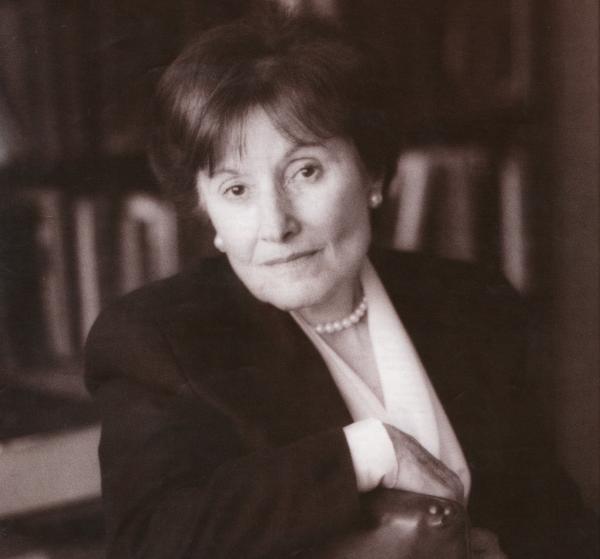Remembering Gertrude Himmelfarb

The 1991 Jefferson Lecturer Gertrude Himmelfarb.
—Humanities magazine, photograph by Barbara Ries

The 1991 Jefferson Lecturer Gertrude Himmelfarb.
—Humanities magazine, photograph by Barbara Ries
Washington, DC —The National Endowment for the Humanities mourns the passing of Jefferson Lecturer and National Humanities Medalist Gertrude Himmelfarb, who died at the age of 97, on December 30, 2019. A celebrated historian of Victorian England, Himmelfarb was a highly regarded writer who mixed biography and intellectual history to trace the curvature of influential ideas and the lives of major figures of the period such as Charles Darwin, John Stuart Mill, and Matthew Arnold. Her work on Victorians and how they thought about and sought to ameliorate poverty and other social ills was especially influential, while her mastery of the essay as a literary and intellectual form made her a formidable commentator even on such lighthearted topics as “the vanishing footnote.”
Himmelfarb was born to a Yiddish-speaking immigrant family in Brooklyn. She attended “large second-rate public schools, not the ‘elite’ ones” she told former NEH Chairman Lynne Cheney for an interview in Humanities magazine. She went on to Brooklyn College and attended graduate school at the University of Chicago, where she did her master’s thesis on Robespierre and Rousseau. While studying the French Revolution, she encountered Lord Acton’s writings on the subject, an experience that steered her toward her primary lifelong subject.
Individual character lay at the center of her method. Victorian Minds, her collection of essays, presented major figures from the “proto-Victorian” Edmund Burke to the “last Victorian” novelist John Buchan. Marriage and Morals among the Victorians is another highly readable volume, not only for its subtle accounts of five unconventional marriages (the Dickenses, the Carlyles, the Ruskins, etc.), but for its penetrating observations on the moral imagination. “If these eminent Victorians agonized over the irregularities and improprieties of their personal lives,” she noted, “it was because they were so anxious about morality itself.” Writing in Humanities magazine, the sociologist Robert Nisbet called her book “a treasure of Victoriana.”
Named an NEH research fellow in 1968, Himmelfarb was also a well-known public intellectual. She served on the National Council for the Humanities from 1982 to 1988. In 1991, she delivered the Jefferson Lecture in the Humanities, almost twenty years after the first one, by Lionel Trilling, whom she had known well and admired. Her lecture “Of Heroes, Villains, and Valets” argued that certain trends in historiography reduce the great figures of history to suit contemporary politics.
In 2004, President Bush awarded Himmelfarb the National Humanities Medal “for her critical analysis of history, which has yielded insights into Victorian England and the foundations of our culture.”
NEH Chairman Jon Parrish Peede, in a statement, said, “The life and work of Gertrude Himmelfarb enriched not only the work of NEH, but the work of the humanities across our country, as her studies in nineteenth-century England became an increasingly salient point of reference for discussions on morality, social policy, and public virtues in late twentieth-century America.”